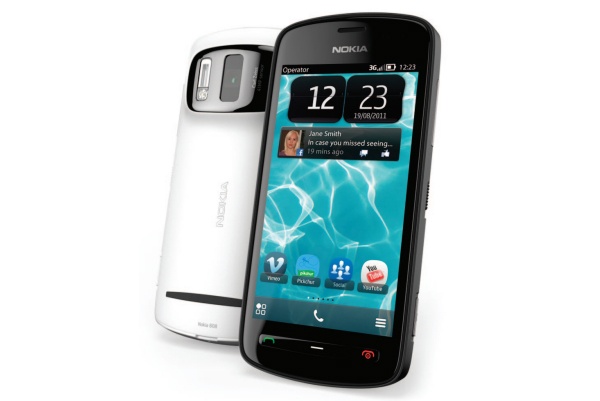Affiliate links on Android Authority may earn us a commission. Learn more.
End of an era: the last Symbian phone
Published onJanuary 24, 2013

My first touch screen phone was an old Nokia 5233, which was pretty crude compared with today’s handsets. Never the less, it was Nokia’s Symbian OS which first wowed me as I swiped my way through the menus and widgets, wondering how I ever survived with just a keypad.
Even though I could never imagine myself moving back to that creaking old handset, it’s a little sad that Nokia have announced that their 808 PureView phone will be their last phone to use the Symbian operating system. In their yearly report Nokia stated:
“During our transition to Windows Phone through 2012, we continued to ship devices based on Symbian. The Nokia 808 PureView, a device which showcases our imaging capabilities and which came to market in mid 2012, was the last Symbian device from Nokia.”
The PureView 808 boasted an impressive 41-megapixel camera, but seemingly failed to find mass adoption by consumers due to its clunky interface. Which isn’t surprising, as the Symbian operating system was definitely failing to keep pace with the market leaders.
Whilst Android and iOS fostered third party app development and continued to add innovative features to their operating system, Symbian remained a much more closely controlled user experience which failed to inspire consumers as well as developers. The OS has also been plagued by security problems over the years, which may have turned away many potential customers who favored a more secure platform.
It’s not really surprising that Nokia have finally decided to ditch their aging OS, sales figures from Q4 2012 showed that Nokia only managed to sell 2.2 million Symbian smartphones, compared to 9.3 million touch Asha handsets and 4.4 million Lumia Windows Phones.
It now looks like Nokia will be focusing solely on their Windows based devices, and there are also rumors that a Windows powered PureView handset could be in development to replace the 808, which could turn out to be a very competitive product.
I don’t suppose many people will be upset to see the back of Symbian, but it’s interesting to see how smartphone operating systems have continued to evolve, and which ones are left by the wayside. And who knows, perhaps one day we’ll be saying the same things about Android or iOS, although I don’t expect that to happen any time this decade.